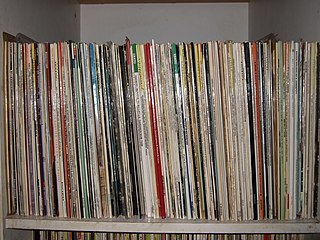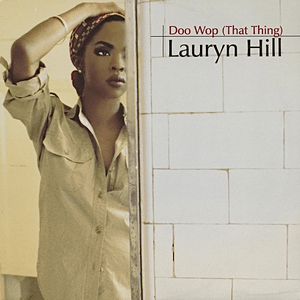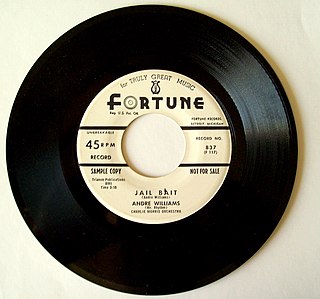Related Research Articles
The Penguins were an American doo-wop group from Los Angeles, California, that were active during the 1950s and early 1960s. They are known for their 1954 hit song, "Earth Angel", which was one of the first rhythm and blues songs to cross over to the pop charts. The song would ultimately prove to be their only success. The song peaked at No. 8 on the US Billboard Best Sellers in Stores pop chart but had a three-week run at No. 1 on the R&B chart.
"Stormy Weather" is a 1933 torch song written by Harold Arlen and Ted Koehler. Ethel Waters first sang it at The Cotton Club night club in Harlem in 1933 and recorded it with the Dorsey Brothers' Orchestra under Brunswick Records that year, and in the same year it was sung in London by Elisabeth Welch and recorded by Frances Langford. Also in 1933, for the first time the entire floor revue from Harlem's Cotton Club went on tour, playing theatres in principal cities. The revue was originally called The Cotton Club Parade of 1933 but for the road tour it was changed to Stormy Weather Revue; it contained the song "Stormy Weather", which was sung by Adelaide Hall.

Doo-wop is a genre of rhythm and blues music that originated in African-American communities during the 1940s, mainly in the large cities of the United States, including New York, Philadelphia, Pittsburgh, Chicago, Baltimore, Newark, Detroit, Washington, D.C., and Los Angeles. It features vocal group harmony that carries an engaging melodic line to a simple beat with little or no instrumentation. Lyrics are simple, usually about love, sung by a lead vocal over background vocals, and often featuring, in the bridge, a melodramatically heartfelt recitative addressed to the beloved. Harmonic singing of nonsense syllables is a common characteristic of these songs. Gaining popularity in the 1950s, doo-wop was "artistically and commercially viable" until the early 1960s, but continued to influence performers in other genres.
The Orioles were an American R&B group of the late 1940s and early 1950s, one of the earliest such vocal groups who established the basic pattern for the doo-wop sound.

"The Lion Sleeps Tonight" is a song originally written and recorded by Solomon Linda under the title "Mbube" for the South African Gallo Record Company in 1939. Linda's original was written in Zulu, while the English version's lyrics were written by George David Weiss.

The Manhattans are an American popular R&B vocal group. Their songs "Kiss and Say Goodbye", recorded in 1976, and 1980's "Shining Star", both sold millions of copies. The Manhattans have recorded 45 hits on the Billboard R&B Chart, including twelve top-10 R&B hits in the United States, starting in 1965. Sixteen of their songs have reached the Billboard Hot 100, including two top 10s and a number-one hit with their song "Kiss and Say Goodbye". They also charted eight U.S. R&B top 20 Albums, three of which were RIAA certified gold.

Record collecting is the hobby of collecting sound recordings, usually of music, but sometimes poetry, reading, historical speeches, and ambient noises. Although the typical focus is on vinyl records, all formats of recorded music can be collected.
"Don't Let the Stars Get in Your Eyes" is a country song about a man away from home who is worried that his paramour may unwittingly stray from their relationship. It was written by Winston L. Moore and published in 1952. The song has been recorded in many different styles by many performers, with Perry Como's version hitting number 1 hit in both the US and UK.

"Doo Wop (That Thing)" is a song by American recording artist Lauryn Hill for her debut solo studio album The Miseducation of Lauryn Hill (1998). It was written and produced by Hill. The song was released as her solo debut and lead single from The Miseducation of Lauryn Hill on August 10, 1998, by Ruffhouse Records and Columbia Records. No commercial release was originally intended for the single in the US, but limited-quantity physical formats were issued two months later, on October 27.

Fortune Records was an American family operated, independent record label located in Detroit, Michigan from 1946 to 1995. The label owners were Jack and Devora Brown, their son Sheldon Brown recorded for the label. Original releases tapered off after 1972 aside from a few albums in the mid-1980s. Fortune specialized in R&B, blues, soul and doo-wop music, although the label also released pop, big band, hillbilly, gospel, rock and roll, and polka records.
"Poor Little Fool" is a song written by Sharon Sheeley and first recorded by Ricky Nelson in 1958.

"In the Still of the Nite", also subsequently titled "In the Still of the Night", is a song written by Fred Parris and recorded by his band the Five Satins. Originally the song was titled "(I'll Remember) In the Still of the Nite" to distinguish itself from Cole Porter's "In the Still of the Night". Later the title was changed to "In the Still of the Night".

The Chords were an American doo-wop vocal group formed in 1951 in The Bronx, New York, known for their 1954 hit "Sh-Boom", which they wrote. It is the only song they created that reached mainstream popularity.

Apollo Records was a record company and label founded in New York City by Hy Siegel and Ted Gottlieb in 1944. A year later it was sold to Ike and Bess Berman. Apollo was known for blues, doo-wop, gospel, jazz, and rock and roll.

The Mark IV were an American musical ensemble, based in Chicago, consisting of Bob Peterson, Leon McGeary, William (Bill) Thomas, and Michael McCarthy. They were originally named The Rhythm Makers. They later changed their name to Mark V, and then – as members left – to The Mark IV, and eventually ending in the 1980s as The Mark IV Trio. The band appears to have recorded only as The Mark IV, however, and they had their biggest hit in 1959 with the novelty song, "I Got a Wife". "I Got a Wife" was set to a lively polka beat, and reached No. 24 in US Billboard Hot 100 chart, and No. 14 on Canadian radio station CHUM's "Chum Chart". The song was later covered by Frankie Yankovic and other polka bands.

"Runaround Sue" is a rock and roll song, originally a US No. 1 Hot 100 hit for the singer Dion during 1961, after he split with the Belmonts. It was written by Dion with Ernie Maresca, and tells the story of a disloyal lover. The song ranked No. 351 on the Rolling Stone list of "The 500 Greatest Songs of All Time".
"It's Too Soon to Know" is an American doo-wop ballad by Deborah Chessler (1923–2012), performed first by The Orioles. It was number one on the American Rhythm and blues charts in November 1948. It is considered by some to be the first "rock and roll" song, and described by others as "the first rhythm and blues vocal group harmony recording".
"Daddy's Home" is a famous song by American doo-wop group Shep and the Limelites. The song was written by the three members of the band, James "Shep" Sheppard (1935–1970), Clarence Bassett (1936–2005) and Charles Baskerville. The group recorded the original version of "Daddy's Home" on February 1, 1961, and it was released on Hull Records in March 1961 with the B-side being "This I Know".
"God Only Knows" was a regional hit for Philadelphia Doo wop group The Capris. It was their debut single for the group and was written by Ruben Wright. The song also had a dramatic effect on Motown singer Marvin Gaye. It has been covered by other artists as well.
References
- ↑ Colin Larkin, ed. (1993). The Guinness Who's Who of Fifties Music (First ed.). Guinness Publishing. p. 132. ISBN 0-85112-732-0.
- ↑ "Five Sharps - Stormy Weather (RARE) (1952)". YouTube. Archived from the original on 2021-12-21. Retrieved 22 July 2021.
- ↑ "Timeline of Musical Styles & Guitar History". Acousticmusic.org. Retrieved 22 July 2021.
- 1 2 3 4 "The Five Sharps' "Stormy Weather": The ultimate doo-wop record". Electricearl.com. Retrieved 2008-09-07.
- ↑ "The Five Sharps - Stormy Weather". 45cat.com. Retrieved 22 July 2021.
- 1 2 Goldberg, Marv (2002). "The 5 Sharps". Uncamarvy.com. Retrieved 2008-09-07.
- ↑ "MR. MUSIC: Man's 'rare' 45 rpm isn't so valuable after all". Courierpress.com. Retrieved 22 July 2021.